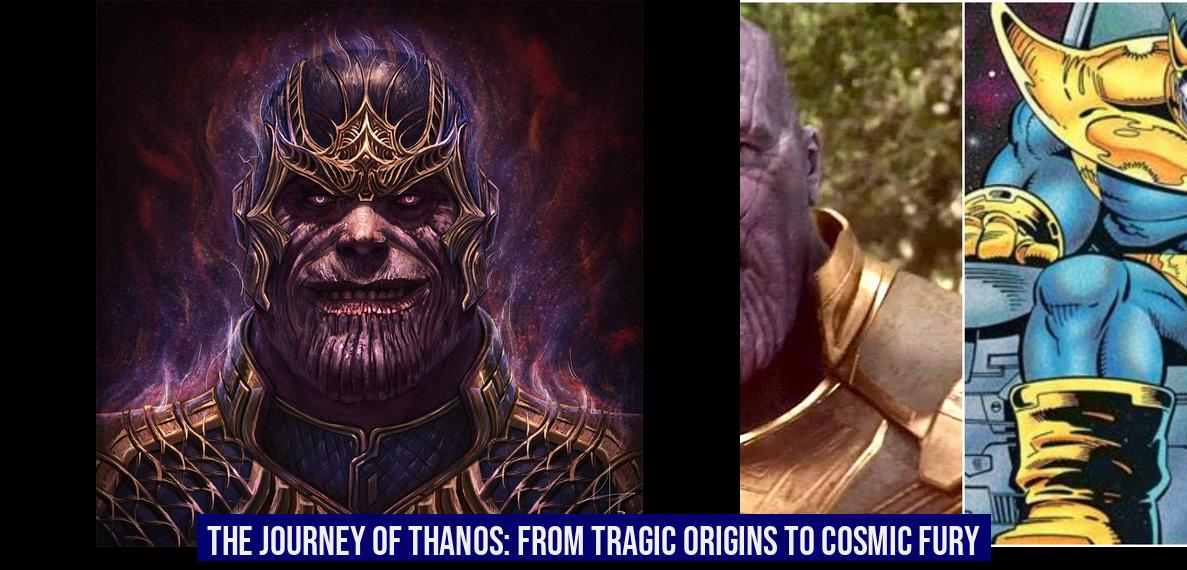Thanos (Earth-616) Wiki: The Mad Titan’s Journey
Thanos, the Mad Titan hailing from Earth-616, epitomizes a complex enigma, intertwined with tales of love, destruction, and cosmic power. He is a character steeped in tragedy, excess, and the relentless pursuit of Death’s affection. Born on Titan to the Eternals, his life is marked by an insatiable thirst for power and an obsession that leads him down a dark path—a quest to win over Mistress Death, a desire that catalyzes many of his menacing exploits across the Marvel Universe.
Origins and Early Life
The roots of Thanos’s malevolence are as twisted as the character himself. Emerging from the Titan colony, the children of Mentor and Sui-San faced a harrowing beginning. Thanos was born with disfigurements stemming from Deviant genes, and his mother’s mental breakdown following his birth set the tone for a hostile existence. Almost instantly, Thanos plunged into darkness; he committed the heinous act of murdering his own mother as a child and explored violent tendencies that would later define his journey.
Trapped in a cycle of death and birth, Thanos’s ambition became a consuming fire. Driven mad with a desire for love, he sought to alleviate his emotional turmoil through acts of destruction and chaos. The early echoes of Thanos’s personality set the stage for a being who would soon become an interstellar threat. His trajectory reflects many deeply ingrained issues: a quest for identity, a dire need for acceptance, and a wintering heart enamored with the idea of death.
The Rise of the Mad Titan: A Devolution
As Thanos evolved into his identity as the Mad Titan, he detached himself from earthly bonds, exploring the cosmos while indulging in violent acts against life across different planets. Sea changes in his character were heralded by his dismissal of emotional entanglements; he fathered secret children, who he left to perish in his wake. This absence of sentiment exemplifies Thanos’s inherited charm: despite his disbalance, he exhibits a high degree of intelligence and strategic acumen.
As his legend grew, so did his ambitions. From commanding battleships to engaging cosmic threats, the Mad Titan’s relentless pursuit of Mistress Death compelled him to amass power, including the coveted Cosmic Cube and the Infinity Gems. These artifacts paved the way for Thanos’s most notorious act: the decimation of half of the universe’s population, a dark proposal to win Death’s favor.
The Ultimate Sacrifice: Decimation and Rebirth
Thanos’s infamous plan during “The Snap” dissects complex moral choice. Armed with the Infinity Gauntlet, he wielded unimaginable power resulting in the controversial decision to eradicate half of all living beings. This act of genocide was justified in the eyes of Thanos as a means of restoring balance—the quintessential philosophy underpinning his character. This paradox—where the villain perceives himself as a hero—forms an interesting lens through which we explore cosmic morality within the Marvel Universe.
Following a series of bloody conflicts, including his encounters with the Avengers and his turbulent relationship with cosmic entities like Adam Warlock, Thanos found himself embroiled in various cycles of life and death. Not only did he face death repeatedly, but he was also reborn in different forms and realities, showcasing the challenges of his character arc as one grapples with the repercussions of their actions across timelines.
Legacy and Cultural Resonance
Thanos’s legacy resonates far beyond comic book panels, reaching into the realms of film, literature, and popular culture. His quest for power, rejection of love, and lust for destruction underscore a perennial inquiry into the nature of existence itself and the human condition. The character not only serves as an archetype of villainy but also reflects deeper societal anxieties surrounding power, environmental conservation, and the ephemeral nature of life.
Insight into the psyche of Thanos reveals layers of tragedy involving his fractured relationships and existential crises that serve to cement his status as a formidable antagonist. In a world where morality is often painted in shades of gray, Thanos embodies a complex juxtaposition between villainy and a misunderstood desire for balance.
Conclusion: The Eternal Cycle of Thanos
Through various incarnations and stories, from comic books to cinematic adaptations, Thanos remains an eternal figure—a bittersweet blend of destruction and longing. His journey across Earth-616 continues to invite exploration and reinterpretation, allowing us to question our own definitions of heroism and villainy. In the grand tapestry of the Marvel Universe, Thanos’s spectral imagery strikes a haunting chord, a reminder that every choice leads us down a path spiraling through identity, consequence, and ultimately, legacy.
In the ever-evolving saga of the Mad Titan, one thing stands evident: Thanos is not just a character; he embodies a compelling reflection on the darker impulses inherent within us all.
What motivates Thanos in his quest for power?
Thanos is primarily motivated by his obsession with winning the affection of Mistress Death. This desire drives him to commit acts of destruction and chaos across the Marvel Universe, reflecting his complex personality and tragic backstory.
How did Thanos’s early life shape his character?
Thanos’s early life was marked by tragedy, including being born with disfigurements and witnessing his mother’s mental breakdown. His violent tendencies emerged early on, culminating in the murder of his mother as a child, which set the tone for his dark and tumultuous journey.
What significant actions did Thanos take to amass power?
Thanos detached himself from emotional bonds and explored the cosmos, engaging in violent acts against life on various planets. He sought powerful artifacts like the Cosmic Cube and the Infinity Gems, which ultimately enabled him to execute his infamous plan to decimate half of the universe’s population.
What is “The Snap” and its significance in Thanos’s story?
“The Snap” refers to Thanos’s controversial decision to use the Infinity Gauntlet to erase half of all living beings in the universe. He justified this act of genocide as a means to restore balance, highlighting the moral complexities and philosophical underpinnings of his character.

